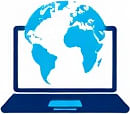The Role of Time Tracking Applications in Remote Work
 by Verner Mayer
by Verner Mayer
Time tracking applications help remote workers manage their hours effectively, boosting productivity and maintaining work-life balance. These tools facilitate better collaboration in virtual teams by providing insights into time usage and task completion. Learn how to integrate them into your routine for optimal results.
Remote work has become a standard for many professionals, and managing time effectively is essential. Time tracking applications offer a straightforward way to monitor hours spent on tasks. These tools can significantly improve daily routines by providing clear data on work patterns.
One key advantage of time tracking applications is their ability to enhance productivity. For instance, by logging activities, users can identify periods of high efficiency. This insight allows remote workers to adjust their schedules accordingly. Productivity often increases when individuals focus on high-yield tasks first.
In addition to boosting output, these applications support work-life balance. Many remote workers struggle with blurred boundaries between professional and personal time. Time tracking applications help by setting limits on work hours. This feature ensures that individuals allocate time for rest and recreation. Maintaining a healthy balance is crucial for long-term well-being.
When considering virtual team collaboration, time tracking applications play a vital role. They enable team members to share progress and align on project timelines. For example, managers can oversee how teams allocate their hours across various projects. This transparency fosters better communication and coordination.
Exploring Features of Time Tracking Applications
Most time tracking applications include basic functions like timers and reports. Users can start and stop timers for different tasks, generating summaries at the end of the day. Advanced options might offer integrations with other work tools, making them versatile for remote setups.
For freelancers, these applications are particularly useful. They assist in billing clients accurately based on actual time spent. This accuracy builds trust and ensures fair compensation. Freelancers benefit from detailed logs that justify their rates.
Businesses transitioning to remote work also find value in these tools. They provide data for performance reviews and resource allocation. By analyzing time data, companies can optimize workflows and reduce inefficiencies. This data-driven approach leads to smoother operations.
Tips for Integrating Time Tracking Applications
To get the most from time tracking applications, start with a simple setup. Begin by tracking a few key activities each day. Over time, expand to cover more aspects of your work. Consistency is important for accurate results.
Set realistic goals when using these tools. For example, aim to limit work sessions to focused blocks with breaks in between. This method, similar to common techniques, helps maintain energy levels. Remote workers should review their logs weekly to spot trends.
Addressing potential challenges is also necessary. Some users might feel overwhelmed by constant monitoring. To counter this, choose applications with user-friendly interfaces that minimize distractions. Customizing settings can make the experience more pleasant.
In virtual teams, encourage collective use of time tracking applications. When everyone participates, it promotes accountability and shared responsibility. This practice strengthens team dynamics and project outcomes.
The Impact on Overall Remote Work Experience
Over time, regular use of time tracking applications can lead to lasting improvements. Workers report higher satisfaction levels when they manage their time well. This positive change extends to personal life, reducing stress from unfinished tasks.
For managers, these tools offer insights into team performance without micromanaging. They can identify areas where support is needed and provide it promptly. This proactive stance enhances employee engagement.
Ultimately, time tracking applications are more than just timers; they are aids for building sustainable work habits. By focusing on key metrics, users can achieve better results in their remote roles. Virtual team collaboration improves as teams synchronize their efforts based on real data.
In summary, incorporating time tracking applications into remote work routines offers clear benefits. They help maintain productivity, support balance, and enhance collaboration. With thoughtful implementation, these tools can transform how individuals and teams operate.
